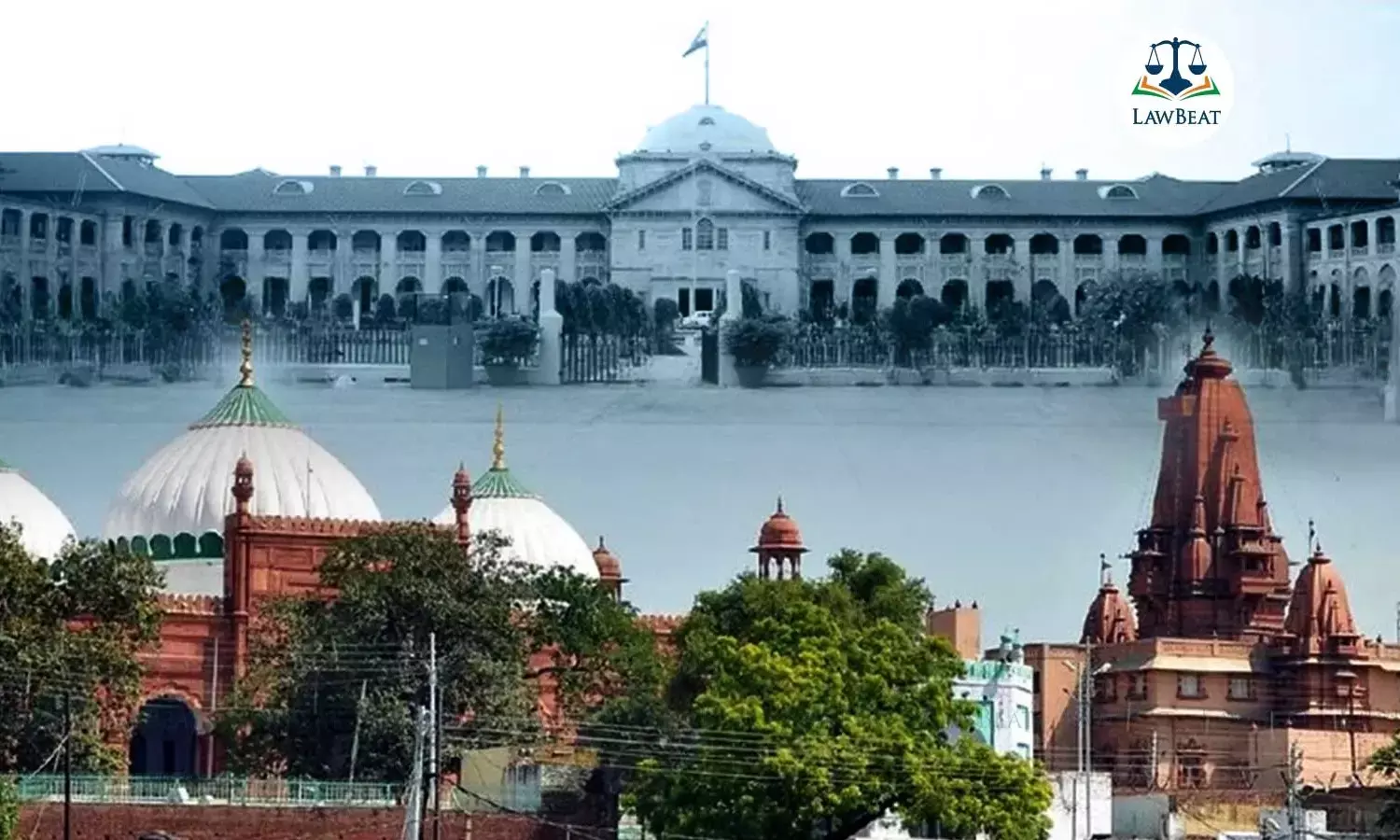'Radha Rani Not a Necessary Party in Krishna Janmabhoomi Case': Allahabad High Court Dismisses Impleadment Plea

In the ongoing Krishna Janmabhoomi–Shahi Idgah dispute, the Allahabad High Court has rejected an application seeking to implead the deity Shriji Radha Rani as a party to the suit. Court held that Radha Rani is neither a necessary nor a proper party to the case and her inclusion would alter the structure of the suit.
The application was filed under Order 1 Rule 10 of the Civil Procedure Code by advocate Anil Kumar Singh Bishen on behalf of Shriji Radha Rani through her next friend Reena N. Singh. It sought to join her as a joint plaintiff in Original Suit No. 7 of 2023, filed by Shri Bhagwan Shrikrishna Lala Virajman and others against the UP Sunni Central Waqf Board and the Shahi Idgah Masjid Committee.
The main suit challenges the alleged encroachment of the Shahi Idgah Masjid over the Krishna Janmasthan in Mathura, asserting that the site is the birthplace of Lord Krishna and holds immense religious significance. The plaintiffs have relied on historical accounts, ASI reports, and religious scriptures to argue for the removal of what they claim is an illegal structure built during Mughal rule.
In her impleadment plea, the applicant claimed that Radha Rani is inseparably associated with Lord Krishna and is jointly entitled to the disputed 13.37 acres of land. She cited references from scriptures including the Brahma Vaivarta Purana, Narada Pancharatra Samhita, and Skanda Purana, portraying herself as the soul of Krishna and thereby a co-deity with ownership rights.
However, the bench of Justice Ram Manohar Narayan Mishra observed that such assertions, drawn from religious texts, cannot be accepted as legal evidence of ownership or interest in immovable property. The judgment noted that no mention was made of a Radha Rani temple on the disputed site, and there was no concrete evidence to establish any legal right over the land claimed by the applicant.
"The Pauranic illustrations are generally considered as hearsay evidence in legal context. In the case of Pauranic illustrations, these are graphic representation of story and events and truth of events, they depict, is usually based on narrative and not on direct observation or testimony. There is no evidence in support of the claim raised by the applicant that the applicant is entitled as joint holder of said land of 13.37 acres and property of the applicant is also involved in suit property claimed by the plaintiff no. 1 as birth place of lord Krishna", court held.
While plaintiff no. 1, represented by Kaushal Kishor Thakur, expressed no objection to Radha Rani’s impleadment, the remaining plaintiffs strongly opposed the move. They argued that the application was contradictory to the suit’s core pleadings, which focus on Krishna Janmabhoomi and do not involve Radha Rani. They also pointed out that Radha Rani is already a party in a separate pending suit before the civil court, thus making her addition to the present case legally untenable.
Court concluded that impleading Radha Rani would lead to an unnecessary expansion of the dispute, potentially causing delay and confusion. It emphasized that without a demonstrable legal or proprietary interest in the subject matter, the application could not be entertained.
With this, the high court dismissed the impleadment application and scheduled the next hearing of the suit for July 4, 2025.
Case Title: Shri Bhagwan Shrikrishna Lala Virajman And 4 Others vs. U.P. Sunni Central Waqf Board 3a And 3 Others
Download judgment herebasis of
impleadment of the applicant in the application is mainly based on
faith and Pauranic illustrations
